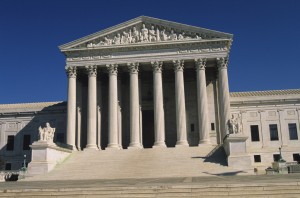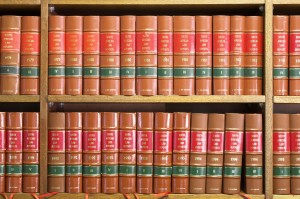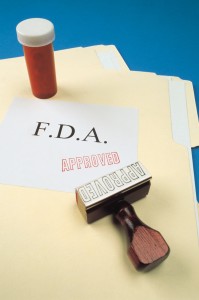 In a decision released on August 6, 2012 in the case of United States of America v. BNP Paribas SA; BNP Paribas AMERICA; BNP Paribas Houston Agency; and Jovenal Miranda Cruz, the United States District Court for the Southern District of Texas, Houston Division allowed the government’s lawsuit alleging banking fraud under the False Claims Act (“FCA”) to move forward, denying the defendants’ motions to dismiss. The defendants, various divisions of the bank BNP Paribas (“BNPP”), are alleged to have engaged in a scheme to defraud the Commodity Credit Corporation (“CCC”). The CCC is a federally chartered corporation within the United States Department of Agriculture (“USDA”) that administers a Supplier Credit Guarantee Program (“SCGP”), which extends credit guarantees to eligible commodity exporters. Under the program, exporters assign to a financial institution both an importer’s promissory note and the exporter’s right to payment, and the CCC guarantees payment to the financial institution. The government’s complaint alleges that BNP, largely through the initiative of defendant Cruz, who was serving as VP and Manager of Trade Finance for BNP in Houston, entered into a series of Master Purchase and Sale Agreements (“MPSAs”) with several United States exporters pursuant to which BNPP agreed to provide financing to the Exporters in exchange for receipt of payment obligations from a series of corresponding Mexican importers and SCGP guarantees for those payment obligations. Because the exporters were owned and/or controlled by Mexican national Pablo Villareal Cantu (“Villareal”), who also owns the importers with which the exporters enter into commerce, the Villareal exporters are ineglible for participation in the SCGP program. The SCGP does not guarantee payments to exporters that are directly or indirectly owned or controlled by the foreign importer or by a person or entity that owns or controls the importer. According to the United States’ complaint, the Villareal exporters and importers submitted false documents to the CCC, as a result of which they received SCGP guarantees. Subsequently, the guarantees and importers’ payment obligations were assigned to BNPP. The arrangement provided that BNPP would extend a line of credit to the exporters up to the amount of the importer payment obligations, minus a fee. After certain importers failed to make over $78 million in payments owed to BNPP, the banks filed claims with the CCC to recover their losses. The fraudulent CCC claims are the gravamen of the government’s complaint, constituting the false claims that gave rise to liability under the FCA.
In a decision released on August 6, 2012 in the case of United States of America v. BNP Paribas SA; BNP Paribas AMERICA; BNP Paribas Houston Agency; and Jovenal Miranda Cruz, the United States District Court for the Southern District of Texas, Houston Division allowed the government’s lawsuit alleging banking fraud under the False Claims Act (“FCA”) to move forward, denying the defendants’ motions to dismiss. The defendants, various divisions of the bank BNP Paribas (“BNPP”), are alleged to have engaged in a scheme to defraud the Commodity Credit Corporation (“CCC”). The CCC is a federally chartered corporation within the United States Department of Agriculture (“USDA”) that administers a Supplier Credit Guarantee Program (“SCGP”), which extends credit guarantees to eligible commodity exporters. Under the program, exporters assign to a financial institution both an importer’s promissory note and the exporter’s right to payment, and the CCC guarantees payment to the financial institution. The government’s complaint alleges that BNP, largely through the initiative of defendant Cruz, who was serving as VP and Manager of Trade Finance for BNP in Houston, entered into a series of Master Purchase and Sale Agreements (“MPSAs”) with several United States exporters pursuant to which BNPP agreed to provide financing to the Exporters in exchange for receipt of payment obligations from a series of corresponding Mexican importers and SCGP guarantees for those payment obligations. Because the exporters were owned and/or controlled by Mexican national Pablo Villareal Cantu (“Villareal”), who also owns the importers with which the exporters enter into commerce, the Villareal exporters are ineglible for participation in the SCGP program. The SCGP does not guarantee payments to exporters that are directly or indirectly owned or controlled by the foreign importer or by a person or entity that owns or controls the importer. According to the United States’ complaint, the Villareal exporters and importers submitted false documents to the CCC, as a result of which they received SCGP guarantees. Subsequently, the guarantees and importers’ payment obligations were assigned to BNPP. The arrangement provided that BNPP would extend a line of credit to the exporters up to the amount of the importer payment obligations, minus a fee. After certain importers failed to make over $78 million in payments owed to BNPP, the banks filed claims with the CCC to recover their losses. The fraudulent CCC claims are the gravamen of the government’s complaint, constituting the false claims that gave rise to liability under the FCA.
The BNPP defendants, including Cruz, filed motions to dismiss in the case, both for failure to state claims for which relief can be granted and for failure to plead fraud with particularity pursuant to Rule 9(b) of the Federal Rules of Civil Procedure. The defendants claimed that, taken on their face, the government’s pleadings affirmatively demonstrated that the FCA’s six year statute of limitations barred the claims. Moreover, the defendants argued that the three year equitable tolling period provided for in the statute did not apply. The court rejected these arguments, and additionally found that a federal law originally dating back to the World War I period, the Wartime Suspension of Limitations Act (“WSLA”), 18 U.S.C. § 3287, applied to civil claims under the FCA and thus the statute of limitations was suspended at any rate. The WSLA was amended in 2008 to apply not only during times of war, but also “‘[w]hen… Congress has enacted a specific authorization for the use of the Armed Forces, as described in section 5(b) of the War Powers Resolution (50 U.S.C. 1544(b)).'” The court’s finding on the applicability of the WSLA to civil FCA claims may be of great import to whistleblowers.
At the heart of the case, however, was the defendants’ contention that technically “true” claims submitted to the government pursuant to fraudulently-induced contracts could not constitute false claims as a matter of law. The court roundly rejected this argument, underscoring that fraudulent inducement to contract does indeed result in FCA liability. Since the exporters and importers in the BNPP case knowingly submitted false claims in order to qualify for the CCC guarantees in the first place, any claims registered pursuant to the guarantees are tainted by fraud and give rise to FCA liability.
 A midwest healthcare provider agreed to resolve False Claims Act allegations brought by two whistleblowers for $18 million dollars.
A midwest healthcare provider agreed to resolve False Claims Act allegations brought by two whistleblowers for $18 million dollars. Whistleblower Attorneys Blog
Whistleblower Attorneys Blog




 rcuit reversed the decision of the district court, which had ruled that further discovery was prohibited by Rule 9(b) of the False Claims Act (FCA). The holding will allow whistleblower’s Cori and Kerrri Rigsby to continue searching for fraud committed by State Farm Fire & Casualty Co. against the government. In the initial claim, a jury had found State Farm Fire guilty of violating the FCA when it defrauded the National Flood Insurance Program (NFIP) after the destruction created by Hurricane Katrina. The Court emphasized that future discovery decisions should be decided by examining the unique facts of each case along with an attempt to strike a balance between the whistleblower’s interest in finding additional fraud claims and the defendant’s interest in limiting the costs of the discovery process.
rcuit reversed the decision of the district court, which had ruled that further discovery was prohibited by Rule 9(b) of the False Claims Act (FCA). The holding will allow whistleblower’s Cori and Kerrri Rigsby to continue searching for fraud committed by State Farm Fire & Casualty Co. against the government. In the initial claim, a jury had found State Farm Fire guilty of violating the FCA when it defrauded the National Flood Insurance Program (NFIP) after the destruction created by Hurricane Katrina. The Court emphasized that future discovery decisions should be decided by examining the unique facts of each case along with an attempt to strike a balance between the whistleblower’s interest in finding additional fraud claims and the defendant’s interest in limiting the costs of the discovery process. 




